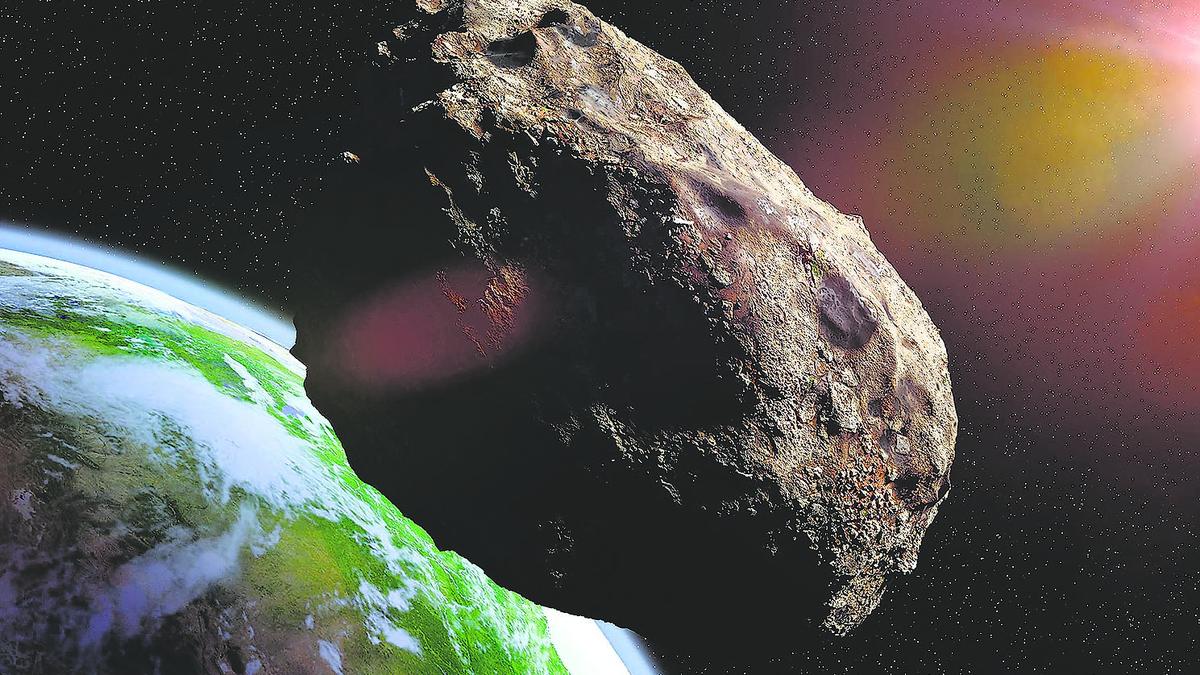
Our schools teach us nothing about avoiding asteroids. That part of our education is left to Hollywood.
| Photo Credit: Getty Images
It might sound like one of Elon Musk’s children (three of whom are named X, Techno Mechanicus and Exa Dark Sidereal), but 2024 YR4 might be more destructive. For it is an asteroid travelling towards the earth at some speed.
Last week, the International Asteroid Warning Network told us there’s a 3.1 percent chance that it might strike the earth. So if you have made plans for 22 December 2032, there might be an issue. For that is when the asteroid is expected to arrive. It is the shortest day of the year – a phrase that suddenly becomes loaded with greater meaning. As Bill Nye said, “If the earth gets hit by an asteroid, it’s game over. It’s control-alt-delete for civilisation.”
It is too early to panic, however. Or even worry. Not even fret. YR4 (as it isn’t called affectionately) is under 90 metres long, and it was initially assumed it wouldn’t cause much damage. The one that rushed dinosaurs into extinction all those million years ago was 10 km long. But who knows if YR4 won’t merge with other friendly asteroids en route? Belief that the end of the world is near is not uncommon among many religious groups. It even has a name – apocalypticism.
Our schools teach us nothing about avoiding asteroids. That part of our education is left to Hollywood. It is the movies that have ready solutions. Get into a rocket and fly off till the earth is habitable again, one suggested. Another explained how an asteroid can be thrown off its path through some kind of nucleary blasty thingy so it goes away into the sun where it is swallowed. The sun is so large it won’t even burp after that meal.
Deflecting the asteroid seems a good idea, especially since no one can sue us. Which is probably why NASA has done it in the past.
But – and here’s good news – days after the 3.1 percent forecast, the odds of the asteroid hitting the earth began to drop, and this week NASA blew the all clear. Probability had fallen to 0.004 percent. That’s one chance in 25,000, later corrected to one in 59,000.
Odds keep fluctuating as figures get more accurate as does data interpretation. Somewhere down the line we were told the asteroid might unleash a destructive force similar to a nuclear bomb. Possible impact areas included the Arabian Sea and South Asia, so you had a right to feel unsettled even if worry might have been premature. By May this year, YR4 will be hidden from our view, to reappear only in 2028.
All this is good to know. An asteroid threat might be a good way of gaining a perspective on our petty battles and unnecessary squabbles and shameful behaviour at a press conference.
Still, here’s a request to scientists: Next time, don’t tell us. If we can’t do anything about it, let us at least enjoy life till the Final Boom (a fitting end to something that began with the Big Bang).
Published – March 01, 2025 08:09 pm IST
